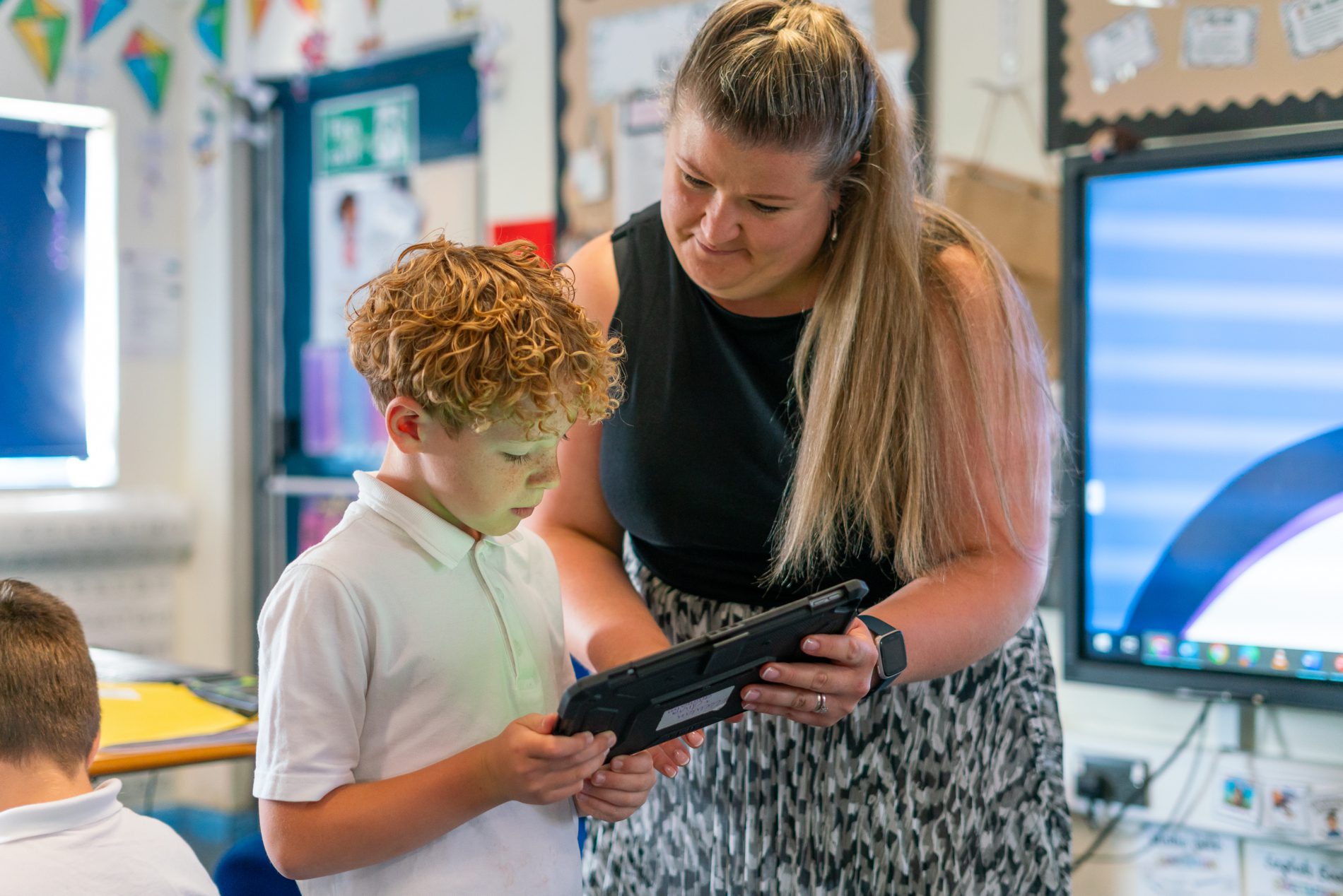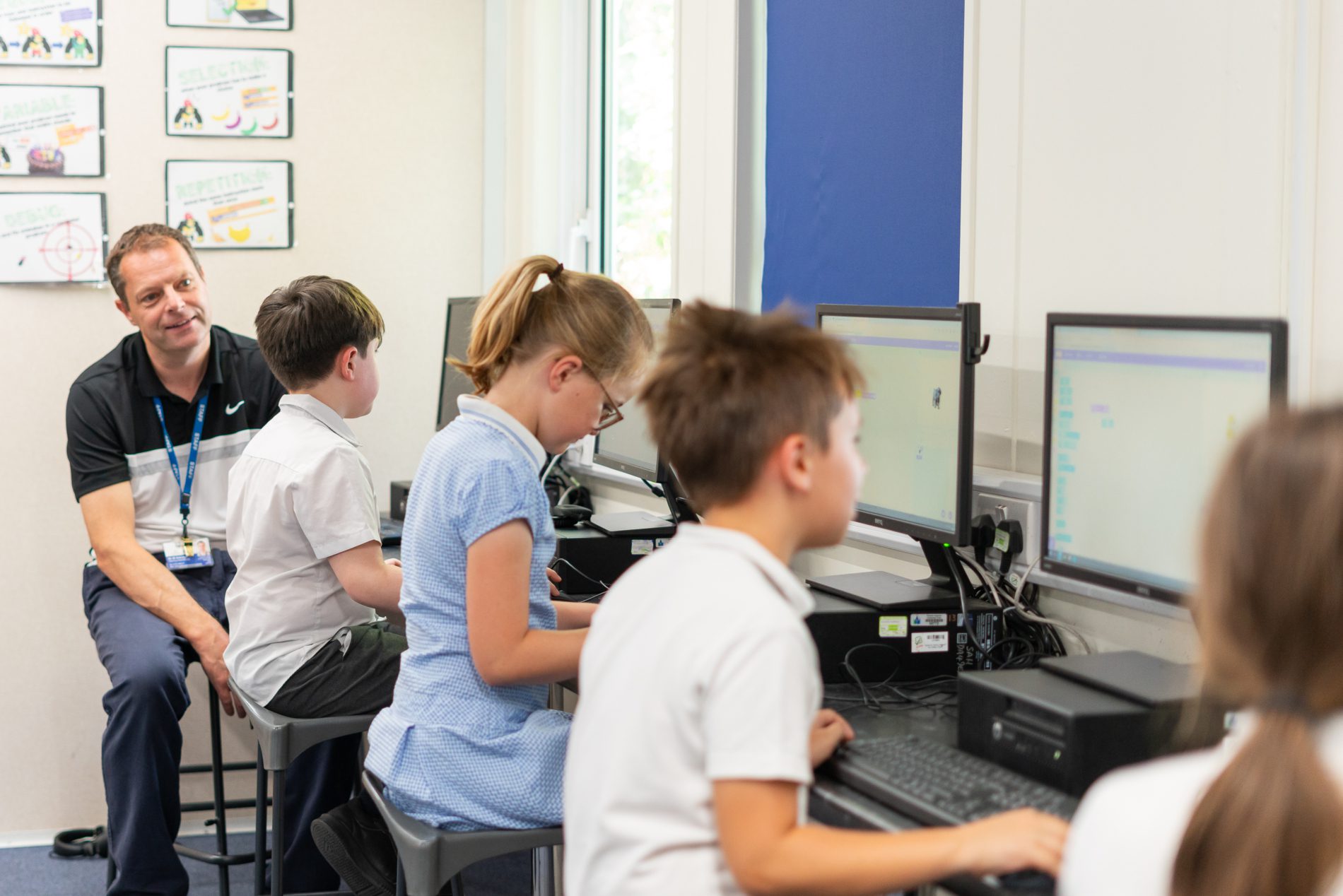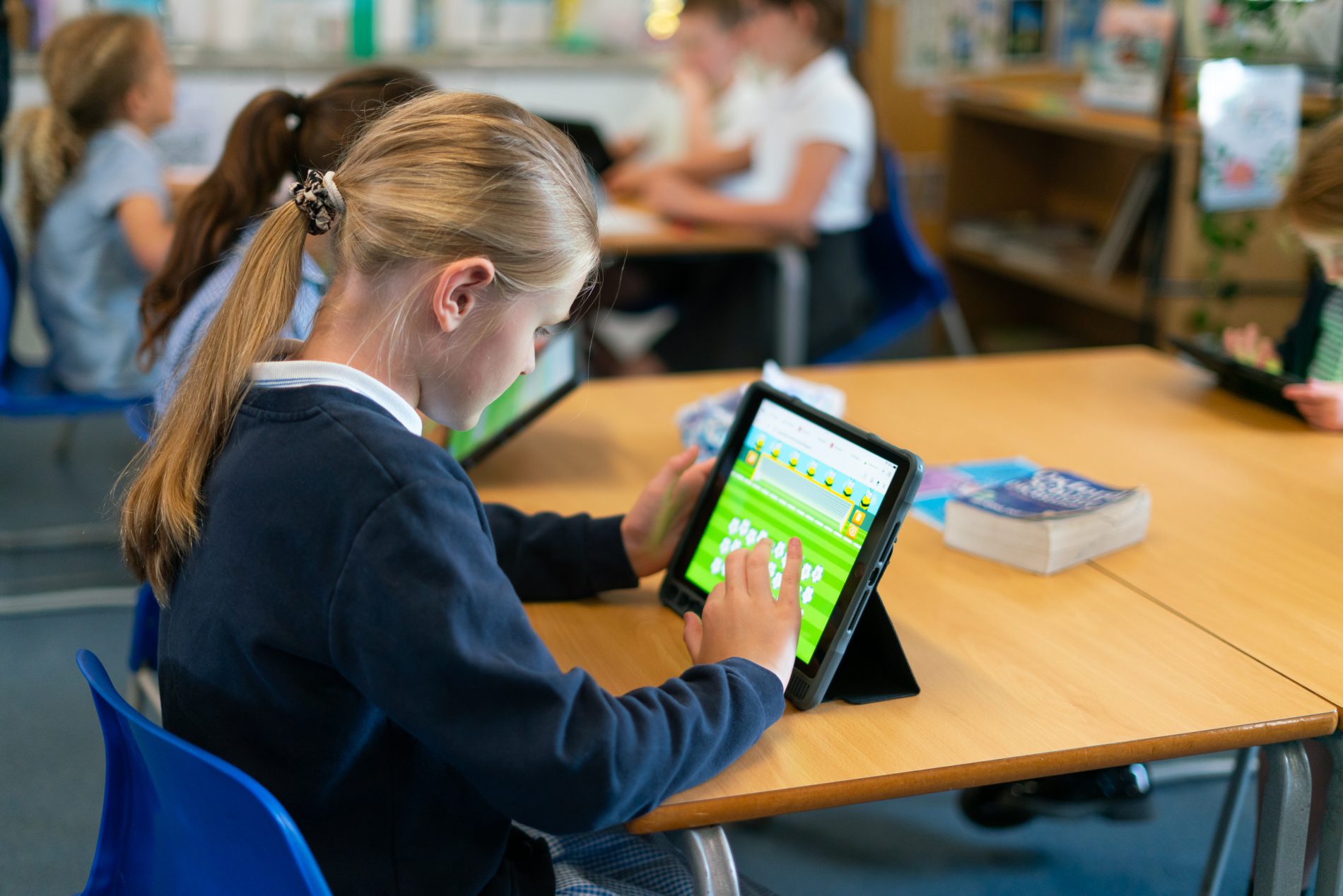Computing Subject Leader: Miss L Gotts
Technology is all around us and it is a significant part of everyone’s daily life. At Sutton-at-Hone, we believe that children should be confident in using current technology as well as preparing them for the development of new technology.
Intent
Computing is recognised as an important subject that will equip students with skills that are important now as well as for the rapidly developing, technological world, in which we live.


Implementation
To meet National Curriculum requirements and to cover all areas, pupils have a weekly lesson of computing, and this subject is taught through the Teach Computing scheme which carefully plans for progression within a school year, key stages and as children move upwards through the school. Learning is broken down into the following strands:
The national curriculum for computing aims to ensure all pupils:
- can evaluate and apply information technology, including new or unfamiliar technologies, analytically to solve problems (Information technology)
- can understand and apply the fundamental principles and concepts of computer science, including abstraction, logic, algorithms and data representation (Data science)
- can analyse problems in computational terms, and have repeated practical experience of writing computer programs in order to solve such problems (Computer science)
- can write and sequence codes, debugging as needed (Programming)
- can use a variety of technology to capture images and video, editing as needed and used for purpose intended (Multimedia)
Impact
Our approach is thorough with the aim to deliver our young people with the knowledge, skills and understanding they need to thrive in the digital world of today and the future.

Computing in Each Stage
Computer Science is taught in its simplest form by playing operational games like ‘Simon says’, ‘Everybody do this’, ‘Follow the Leader’, etc. This ensures that children understand the need to follow instructions and listen to commands. They would then progress to looking at physical objects like Beebots in cross-curricular learning. In addition, children will also be encouraged to use iPad apps and computers where the children can progressively apply their computing skills.
Children will be learning what algorithms are, which will not always involve computers. When explained as “a set of instructions”, these ideas can be illustrated using recipes, or by breaking down the steps of children’s morning routines. But they will also be creating and debugging simple programs of their own, developing logical reasoning skills and taking their first steps in using devices to create, organise, store, manipulate and retrieve digital content using apps like Scratch Jnr, and use of equipment like Beebots.
Computing is taught through discreet programming lessons using the software ‘Scratch’ and ‘Espresso Coding’ where the children learn about data, algorithms, repetition, iteration and computer networks. Children will be creating and debugging more complicated programs with specific goals and understanding concepts like variables and sequence, selection and repetition in programs. They will be developing their logical reasoning skills and learning to use websites and other internet services. This will enable children to develop an understanding of the principles of Computer Science by promoting and developing their computational thinking.
Computing Progression
SEND Information
Learning is adapted where necessary to support SEND/EAL pupils and to challenge more able pupils.
Computing Extra Resources
For more resources about online safety, please visit our resources page here.

